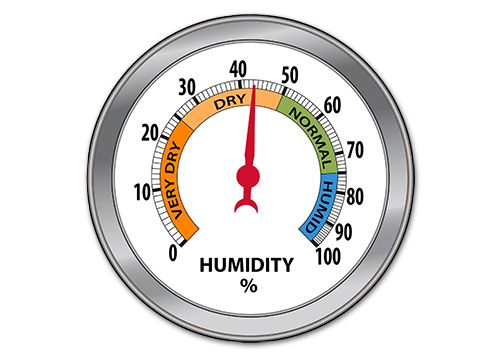Humidity Control in Your Home: Impact on Comfort and Health
Maintaining balanced humidity levels within your home is a key factor in enhancing indoor air quality. This connection significantly impacts comfort, health, and the atmosphere in your home, with both excess and insufficient moisture posing potential risks. Excessive humidity can lead to sensations of stickiness, discomfort, and worsen respiratory issues. Alternatively, low humidity can result in dry skin, irritated nasal passages, and other unpleasant symptoms. Achieving the optimal amount of humidity, ideally between 30 and 50 percent, is vital for fostering a pleasant and safe home environment.
Practical Tips for Maintaining Comfortable Indoor Humidity
To uphold comfortable humidity levels in your home, a proactive approach combining preventative measures and effective moisture control strategies is essential. Implementing these strategies can significantly improve the air quality in your home and your overall well-being:
- Prioritize proper ventilation: Invest in a reliable ventilation system that not only regulates air quality and temperature but also manages moisture levels. Too much can compromise your home’s structural integrity and introduce harmful bacteria into the air, negatively affecting your family’s and your own health. Regular HVAC maintenance is crucial to ensure proper performance and functioning. Moreover, keeping vents unobstructed, replacing air filters regularly, inspecting ductwork for leaks, and utilizing fans in areas susceptible to dampness, like bathrooms and kitchens can enhance indoor comfort and protect air quality.
- Maintain your air conditioning system: Regular maintenance of your air conditioning unit is essential to efficiently remove excess moisture and maintain comfort. Inadequate cooling can lead to moisture-related issues, especially during periods of high outdoor humidity. Schedule air conditioning maintenance before the onset of summer to optimize performance and prioritize refreshing cooling.
- Use a dehumidifier: Combat high humidity and prevent the proliferation of pollutants by using a dehumidifier. A high percentage of moisture in the air can promote mold growth and trigger various health issues, including asthma and respiratory ailments. Dehumidifiers help eliminate musty odors, dust, mildew, and other contaminants, ensuring fresh and pure indoor air while safeguarding your health and home.
- Use a humidifier: Investing in a whole house humidifier helps to distribute moisture evenly throughout your home, providing comfort in every room. This is particularly important during the frigid winter months when dry air is common and can cause discomfort and damage to fixtures such as wallpaper and wooden floors. A humidifier can help your home achieve optimal levels, reducing the risk of respiratory illnesses and infections while protecting your home’s interiors from unnecessary wear.
- Call an expert: If you notice indications such as condensation on windows, mold growth, paint damage, or mugginess in your home, it’s best to get an expert opinion. An HVAC professional can accurately diagnose whether the air is too dry or too moist and can suggest solutions such as installing a smart thermostat to monitor humidity, utilizing fans and opening windows to circulate the air, or making upgrades to your HVAC system.
Experience relief from damp or dry air with a professional consultation from the experts at Comfort Solutions. Our knowledgeable team is prepared to assist you in managing the humidity in your home and identifying the perfect solution to restore comfort. Contact us today for further details or to schedule an appointment.

Recent Posts

How to Reduce Your Heating Bills this Winter

The Benefits of Seasonal HVAC Inspections

The Pros and Cons of Ductless HVAC Systems

How to Reduce HVAC Noise in Your Home
